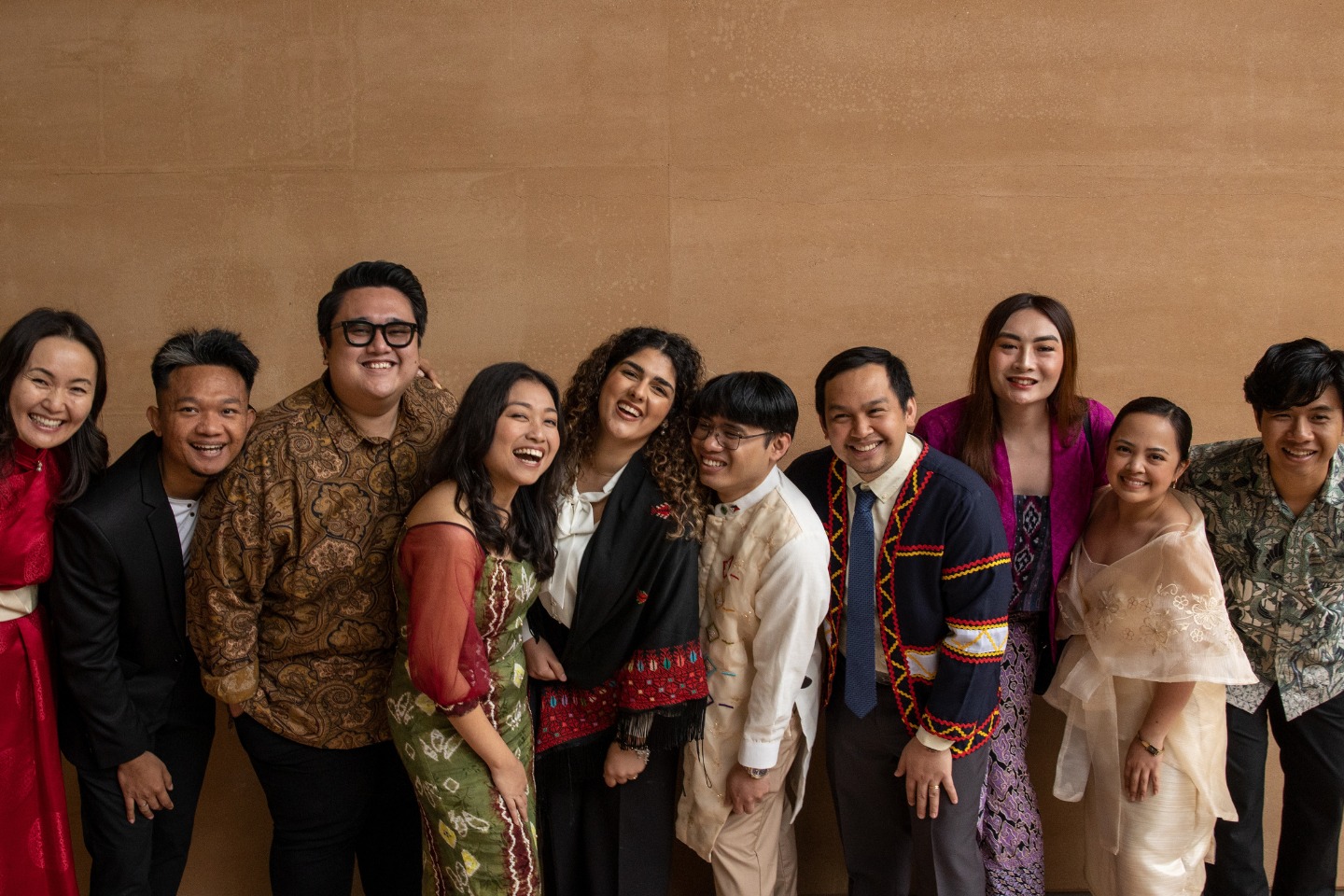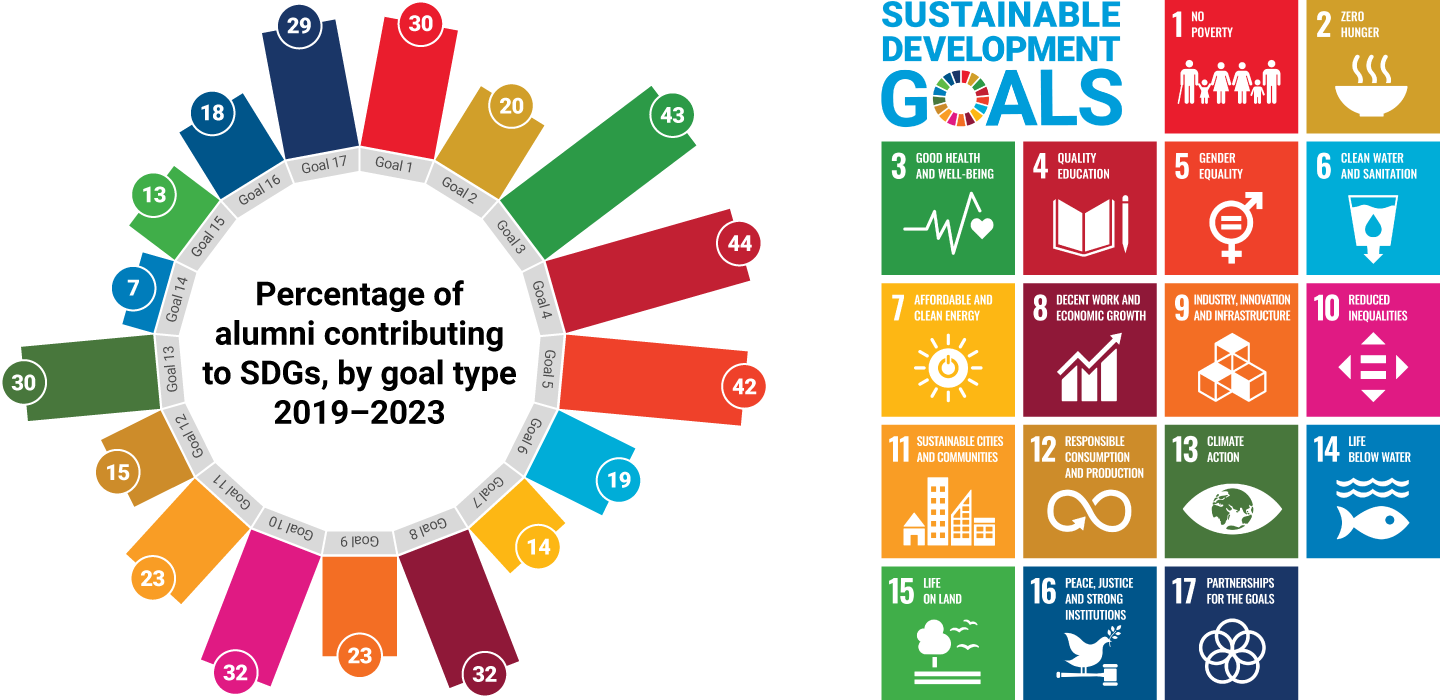
Australia Awards alumni go from strength to strength for sustainable development
Research 16 Oct 2024 5 minute readA new report shows recipients of Australia Awards scholarships have had an impact on sustainable development in their home countries – facilitated by strengthening careers and leadership.
A longitudinal study of more than 1,300 participants in an Australia Awards scholarship program has shown that, collectively, they contributed to all 17 United Nations Sustainable Development Goals (SDGs) between 2019 and 2023.
The Australian Department of Foreign Affairs and Trade (DFAT) offers the scholarships – which include study at Australian universities – to emerging leaders from developing countries, to help them contribute to their nation’s development, resilience and prosperity.
The study was conducted by the Global Tracer Facility (GTF), a research program funded by DFAT and managed by the Australian Council for Educational Research (ACER).
A 2023 survey of Australia Awards alumni who completed their scholarships between 2013 and 2016 and who had also responded to a comparable survey in 2019, forms the basis of the GTF study report.
‘The findings highlight that close to a decade post-award, alumni continue to progress in their careers, deepen their influence and grow their networks,’ the report concludes.
Gaining and sharing knowledge across the world
The 1,388 survey respondents were from more than 80 countries, with many from Australia Awards focus regions of East Asia (46.7%), Southwest Asia and Mongolia (19.2%) or Sub-Saharan Africa (17.3%).
The majority were recipients of either an Australia Awards Scholarship or an Australian Development Scholarship, with common fields of study being society and culture, management and commerce, agriculture, the environment and health.
Most alumni had studied at the postgraduate level and completed their scholarships by 2016.
The report shows that between 2019 and 2023, more than half were working in the government or public sector in their home countries, and 90% of alumni overall had experienced an increase in the complexity of their work, levels of responsibility and growth in their professional network.
In 2023, close to 90% were in leadership positions in their organisation or community, the report says, ‘suggesting that almost all Australia Award alumni are in a position of influence’.
In both 2019 and 2023, more than 90% reported they were able to pass on new skills and knowledge to others and had introduced improvements and innovations through their work because of their Australia Award.
Where and how are alumni having an impact?
Almost all alumni (97.8%) had contributed to at least one of the United Nations SDGs in the previous 5 years, while 79.2% reported contributing to more than 2.
Alumni were found to be most commonly involved in progressing the goals of quality education, good health and wellbeing, and gender equality in their home countries.

Almost 30% of surveyed alumni had used partnerships with Australians in pursuing SDGs.
In networking with Australia, the most common professional connection was with universities. The proportion of alumni who reported such a connection dropped from 66.4% in 2019 to 59.6% in 2023.
By comparison, the proportion of alumni connecting with national or state government departments in Australia rose from 20% in 2019 to 25.5% in 2023.
How the Australia Awards supported careers
‘When asked about the most significant factor that has helped their career in the previous 5 years, the most common response was the skills and knowledge gained in their Australian scholarship qualification,’ the study reports.
The exposure to different values and ways of thinking gained from the scholarship experience was also significant.
Learn more
Read the Australia Awards Alumni Longitudinal Global Tracer Survey 2023
